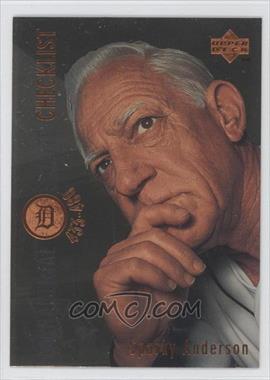Title of Work and its Form: Take Me Out, play
Author: Richard Greenberg
Date of Work: 2003
Where the Work Can Be Found: The play is performed across the world and the script is available from Dramatists Play Service and in trade paperback. The prestigious Public Theater shepherded the play through its American debut, first Off-Broadway and then On.
Element of Craft We’re Stealing: Narrative Scope
Discussion:
Mr. Greenberg’s Tony-winning play is based upon a fascinating hypothetical: “What would happen if the best-loved player and the captain of the most popular baseball team came out of the closet?” Well, some of Darren Lemming’s teammates are not too pleased to be so close to a homosexual. (Now that they know he is one, that is.) Shane Mungitt, an outspoken closer, ends act one with some statements that are politically incorrect. So the Empires are not having a good season. Not only must the team do their best to win games, they must contend with being at the center of a huge news story and the new pitcher from Japan accidentally kills Darren’s close ballplayer friend with a pitch. As the play concludes, Darren and his teammates have learned about themselves and about life.
Isn’t it fun to get a rise out of people by telling them shocking news? Think of the joy a hippie would have felt upon telling his stodgy, square uncle about Watergate. It’s titillating to consider the “gay angle” of the play on its own, but Mr. Greenberg has put far more drama into his play. The shock value of a coming out is powerful, but fleeting. Instead, it’s clear that Mr. Greenberg has much bigger ambitions for the play. Darren is not a “stereotypical” homosexual (not that there really is one). He’s a human being. He loves being a ballplayer, but there’s much more to the character; just as there is more to a person than just being gay or straight. Mr. Greenberg treats the complicated issues in a complicated manner. This is a variation on the sage writing advice: show, don’t tell. Instead of TELLING you that Darren is a complete human being and TELLING you that the Empires’ season was complicated, he SHOWS you these things by trying to capture life in all of its messy glory.
Did you know?
- A few former Major League Baseball players have publicly disclosed their homosexuality, but Glenn Burke was the only one whose sexuality was known to his teammates. (This lifelong Tiger fan can’t help but send a shoutout to Billy Bean, former Tiger outfielder and current businessman/motivational speaker. Bean came out in 1999, serving as a role model to other gay individuals. This act also helped some straight sports fans understand that it’s not a big deal to have a gay player on the team you love.)
- John Rocker, Atlanta Braves relief pitcher, made some offensive comments to Sports Illustrated in 1999. Rocker apologized (many times), but the ensuing public backlash derailed Rocker’s career.
- Carl Mays, then a star pitcher for the Yankees, was an aggressive hurler with a deceptive submarine movement. During a 1920 game against the Cleveland Indians, Mays hit Chapman in the head with a pitch, fracturing his skull. Chapman died in a few hours.
Guess what? Mr. Greenberg stole all of these ideas and put them into his play. Each of these real-life cases generated a lot of public controversy; by fictionalizing them, Mr. Greenberg is attracting attention for his play while empowering himself to make his own comments. Take Me Out is very much Mr. Greenberg’s own composition, but he picked and chose real-life events to use in his play, just as a shopper selects produce in a market.
What Should We Steal?
- Avoid dealing with big issues in an exaggerated, maudlin fashion. Is it interesting to consider what the reaction would be if a big-time current ballplayer came out of the closet? Sure. Mr. Greenberg has bigger ideas. Instead of focusing on one part of Darren’s life, he deals with a number of big issues. Racism, the guilt we can feel after accidents, the pain of unrequited feelings, the strength of friendship…they’re all in the play. A person may buy a ticket because of an intriguing premise, but you’ll earn an audience if you care more about the aftermath of the premise.
- Appropriate and fictionalize real events. Think of the last time that your jaw dropped at a news story. You obviously cared about what happened; why not work the story into your fiction. Best of all, you can take the elements of the story that you like best and smooth out whatever parts you like least.


 Sparky Anderson (1934 - 2010)
Sparky Anderson (1934 - 2010)